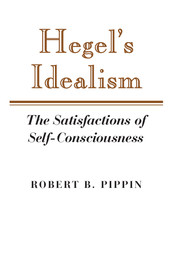The Persistence of Subjectivity
On the Kantian Aftermath
- Author: Robert B. Pippin, University of Chicago
- Date Published: July 2005
- availability: This ISBN is for an eBook version which is distributed on our behalf by a third party.
- format: Adobe eBook Reader
- isbn: 9780511114182
Find out more about Cambridge eBooks
Adobe eBook Reader
Other available formats:
Hardback, Paperback
Looking for an inspection copy?
Please email [email protected] to enquire about an inspection copy of this book
-
The Persistence of Subjectivity examines several approaches to, and critiques of, the core notion in the self-understanding and legitimation of the modern, 'bourgeois' form of life: the free, reflective, self-determining subject. Since it is a relatively recent historical development that human beings think of themselves as individual centers of agency, and that one's entitlement to such a self-determining life is absolutely valuable, the issue at stake also involves the question of the historical location of philosophy. What might it mean to take seriously Hegel's claim that philosophical reflection is always reflection on the historical 'actuality' of its own age? Discussing Heidegger, Gadamer, Adorno, Leo Strauss, Manfred Frank, and John McDowell, Robert Pippin attempts to understand how subjectivity arises in contemporary institutional practices such as medicine, as well as in other contexts such as modernism in the visual arts and in the novels of Marcel Proust.
Read more- Interpretation of what Hegel might have meant by claiming that philosophy 'is its own age comprehended in thought'
- Avoids the usual alternatives in discussions about the nature and very possibility of subjectivity
- Deals with a wide range of figures and topics including Hegel and Adorno
Reviews & endorsements
'… Pippin is one of the most original and imaginative philosophers now at work. … I can think of no other philosopher writing today who is so consistently illuminating on such a wide range of topics. We can learn a lot from Pippin.' Notre Dame Philosophical Reviews
Customer reviews
Not yet reviewed
Be the first to review
Review was not posted due to profanity
×Product details
- Date Published: July 2005
- format: Adobe eBook Reader
- isbn: 9780511114182
- availability: This ISBN is for an eBook version which is distributed on our behalf by a third party.
Table of Contents
1. Introduction: 'bourgeois philosophy' and the problem of the subject
Part I:
2. The Kantian aftermath: reaction and revolution in modern German philosophy
Part II:
3. Necessary conditions for the possibility of what isn't: Heidegger on failed meaning
4. Gadamer's Hegel: subjectivity and reflection
5. Negative ethics: Adorno on the falseness of bourgeois life
6. The unavailability of the ordinary: Strauss on the philosophical fate of modernity
7. Hannah Arendt and the bourgeois origins of totalitarian evil
8. On not being a neo-structuralist: remarks on Manfred Frank and romantic subjectivity
9. Leaving nature behind: or, two cheers for subjectivism: on John McDowell
Part III:
10. The ethical status of civility
11. Medical practice and Social authority in modernity
Part IV. Expression:
12. The force of felt necessity: literature, ethical knowledge, and the law
13. What was abstract art? (from the point of view of Hegel)
14. On becoming who one is: Proust's problematic selves.
Sorry, this resource is locked
Please register or sign in to request access. If you are having problems accessing these resources please email [email protected]
Register Sign in» Proceed
You are now leaving the Cambridge University Press website. Your eBook purchase and download will be completed by our partner www.ebooks.com. Please see the permission section of the www.ebooks.com catalogue page for details of the print & copy limits on our eBooks.
Continue ×Are you sure you want to delete your account?
This cannot be undone.
Thank you for your feedback which will help us improve our service.
If you requested a response, we will make sure to get back to you shortly.
×











